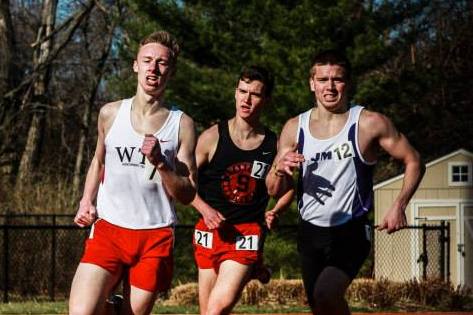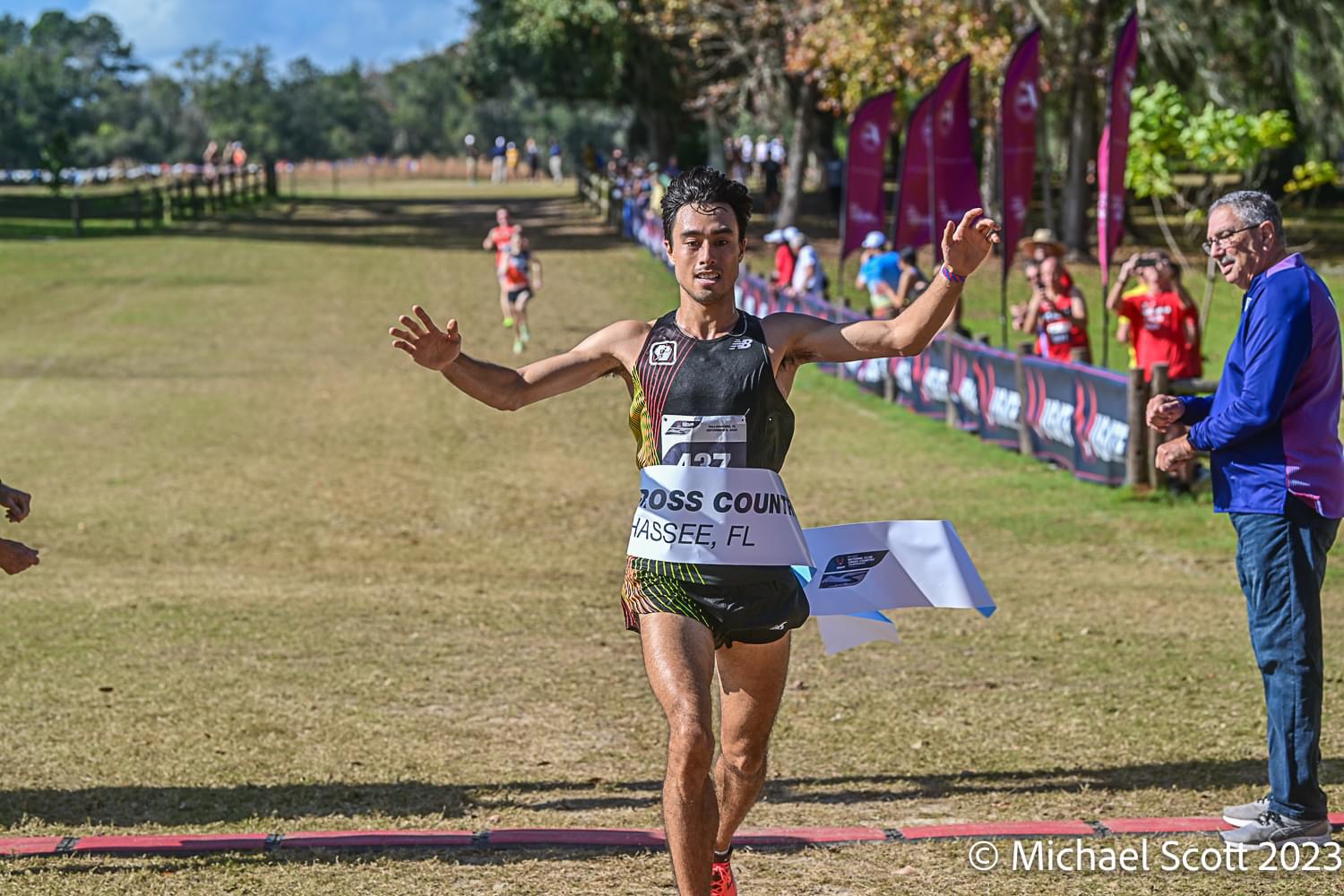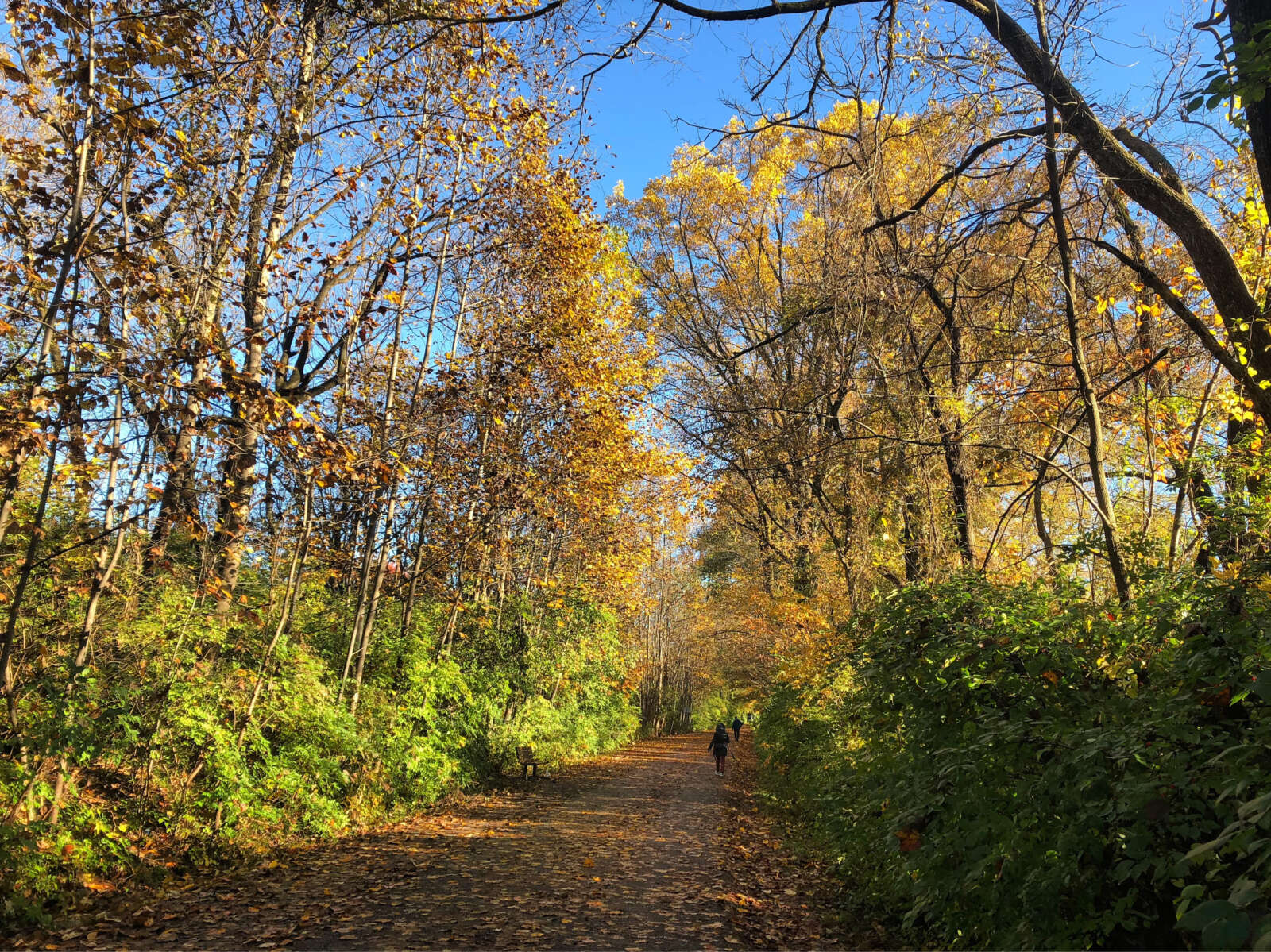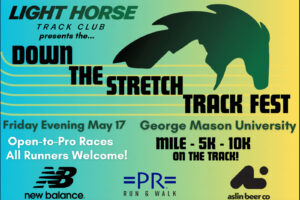
It’s not unusual for Carolyn Ruth Carlson, of Chantilly, to be found grinding away on her stationary bike with science textbooks open or while looking at a PowerPoint presentation.
Choosing between a degree in biology and the triathlon team at James Madison University simply wasn’t an option.
“Sometimes I get distracted by the intervals, but usually I can get some studying done,” Carlson said.
Carlson is one of a number of local high school runners who leave the area without plans to continue representing their schools as varsity-level athletes. An estimated 92 percent of the nation’s high school runners fall in this category, but many are finding ways to continue pursing running outside of their colleges’ athletic departments.
The stakes aren’t as high as a Division I team, but the commitment is serious.
“I am a biology major and being on the tri team is a huge time commitment, but I love it,” she said. “These are the people I would want to hang out with, anyway. It’s exactly where I would want to be.”
Not all college-bound athletes find their fit as easily.
When Zach Weinstein was a junior at Winston Churchill high school in Maryland, everything was in place for a perfect final season that would land him on a college track team.
He was focused, logged the miles and was in touch with a number of schools and coaches about running on their teams. Then his training took a turn for the worst.
“The summer is an important time to get ready for cross country and I was hoping to do big things in the fall. I trained hard, too hard,” Weinstein said. “I overdid it and I got hurt.”
His college plan needed some revisiting.
“I wanted to do really well my senior fall because that’s a key time to seal the deal with coaches,” he said. “If I’d had a better cross country season I probably could have been able to run on a varsity team somewhere.”
Now a junior at Stanford, Weinstein had to blaze his own trail to find a place to fit his competitive-but-not-quite-varsity running style. The Stanford Running Club wasn’t quite what he was looking for.
“I was disappointed,” he said. “It was casual — show up a couple days a week if you feel like it. Which is great for a lot of reasons — and for a lot of runners — but not for me. I wanted to have a more serious structure, like in high school. I wanted to be competitive.”
Weinstein teamed up with other club members to form a more serious team. With the help of a few runners and a coach, the competitive branch of the Stanford Running Club now has two mandatory intense workouts a week, long runs and meets.
Looking back, Weinstein said he couldn’t imagine the time commitment it would take to run on Stanford’s track and cross country teams.
“I am amazed at what they can do,” he said. “I can’t imagine being a varsity athlete and traveling every weekend and taking serious classes alongside that.”
When it comes down to it, Weinstein said no varsity opportunity could have swayed him from his college decision.
“I think I really would have enjoyed being on a varsity team but I just couldn’t pass up Stanford,” Weinstein said. “If I went to another school and ran on varsity but the school didn’t have as good academics or social energy, I’d regret it if I got hurt.”
Erin Horil, another Chantilly alumna, was also plagued with injury from running in high school.
“In high school I ran all four years but I battled with a lot of different injuries,” Horil said. “I even broke my hip senior year.”
Although running was her passion, Horil said she knew she couldn’t run competitively in college without risking serious injuries. Like Carlson, Horil found the JMU triathlon team.
“I love it. I couldn’t be happier, honestly,” Horil said. “It was a bummer in high school not to be able to run as much as I wanted to.”
Now, because of the triathlon’s diverse training program, she is swimming, biking and running injury-free. The combination, she said, is perfect for her.
Leaving a rigid high school schedule and a familiar home environment means big changes for any college-bound senior.
Especially without the help of athletic department staff, a foreign place with new friends, a sleep schedule turned upside-down, and unlimited amounts of less-than-ideal food can be barriers to focused training.
More than a million high school students run on track and cross country teams every year but only 8 percent continue on to run in college, and only part of them on varsity teams.
What about the other 92 percent?
The Collegiate Running Association is working to get them back in their running shoes.
The non-profit group partners with well‐established races and offers prize money for college runners: casual runners, club teams, elite runners, anyone with a passion for running.
“We want the 95 percent of high school runners that do not compete in the NCAA to stay in the sport and excel,” co-founders Steve Taylor and Jon Molz write in the organization’s welcome letter.
The only requirement for those interested in competing in a Collegiate Running Association race is that the participant be enrolled in at least one college course.
“We’ve seen athletes coming out of high school who want to compete in a sport but they are only going to college for one reason — to get their education,” Taylor said. “Maybe they don’t have time to dedicate to a full-blown Division I or II or III program with traveling on top of that. It just won’t work for them. We want to be very inclusive. The whole point is to provide running opportunities to any college student here in the United States.”
There are roughly 450 NCAA athletic programs that do not sponsor year-round running programs, the Collegiate Running Association reports. The group also wants to provide an opportunity for runners at schools that only have offer either cross country or track and field.
“As I got into coaching I realized that we coach some very strong, very good athletes, young men and women who were very capable of being competitive in their careers,” said Taylor, who is also a NCAA Division I cross country and track and field coach at the University of Richmond. “But there were not a lot of opportunities for them. So I thought ‘what can we do in our country to help people stay in the sport?’ There are more and more limits and less and less opportunities for high school athletes that want to compete in college.”
In March, more than 3,600 college students went to Richmond to compete in the first Collegiate Running Association National Championship, a 10k run as part of the Monument Avenue 10k. The mountain running championship was held July 6 in New Hampshire. “The NCAA doesn’t cover road racing, mountain and trail running,” Taylor said. “We wanted to create a competitive opportunity for that, too.”
The opportunities to run in college on a club level are appealing to many runners not ready or able to make the varsity commitment. The benefits extend beyond fitness.
Horil’s club team provides the flexibility she needs for a well-rounded college experience as a kinesiology major.
“Training can take up so much time,” she said. “Sometimes I need to stop and think: ‘Do I really do another training session today or should I be spending time with my friends. Do I want to stay out late with my friends or go to bed early so I can wake up early and feel good for my workout?’ You have to balance it.”
This article first appeared in the September/October RunWashington.
Recent Stories
Down The Stretch Track Fest
Down The Stretch Track Fest is a track celebration!
A distance-focused track meet at George Mason University featuring community-to-pro-level races on Friday evening, May 17th.
New Balance merch, Aslin Beer, music all night, and announcers keeping you up-to-date on the
Run the Greenway
We are just days away from the 4th annual Run The Greenway Race and
spots are filling up fast! We don’t want any Jedi to be left behind at this year’s
5K, 10K, or 800-meter Kids Fun Run, or virtual







